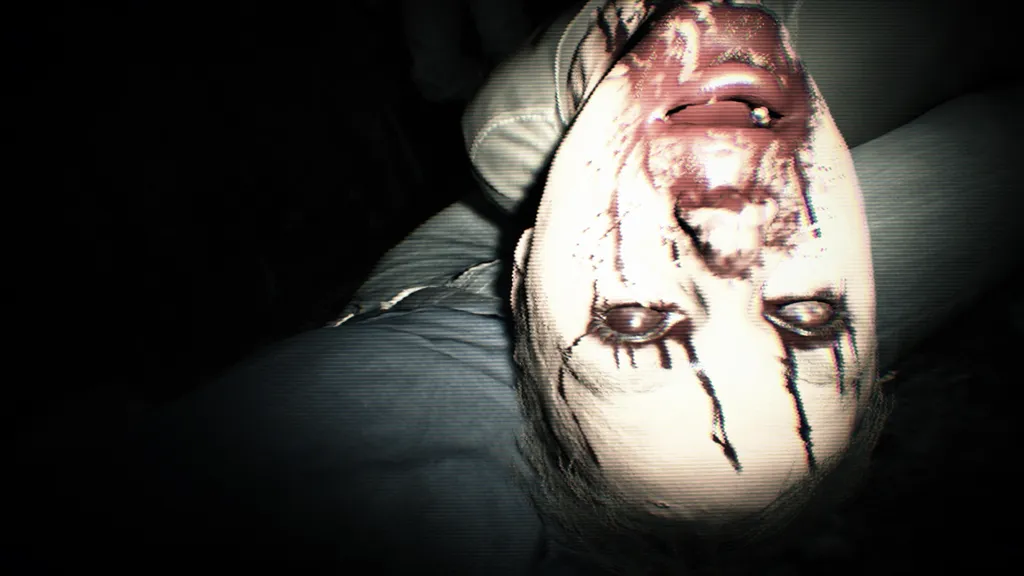It’s 1996 and I am frozen solid. I can see Chris Redfield still standing, against all odds, clutching his side in pain. What I can’t see is the hunter shuffling around in the background, but I can sure as hell hear it. I’m too terrified to take another step but, all the same, I know I’m having a great time and making gaming history.
I got that same inkling in 2005 as Leon Kennedy. I had a handful of bullets to take on an army of mindless, unflinching enemies. I had the President’s daughter to protect, and a chainsaw-wielding maniac let loose, intent on detaching my head from my shoulders. It’s a rare thrill, the kind that reminds me why I play games in the first place.
I wonder if I’ll capture that same thrill once more in 2017?
Resident Evil has had a long life filled with a lot of good games. From 1996 through to 2002 we saw no less than five games in the series that utilized the classic fixed camera view point and tank control scheme. It made players fight with their gamepads while counting their supplies by the bullet, wrestling with survival in a way they never had before. It was no secret, though, that by the time series prequel Resident Evil 0 rolled around, we were in need of a bit of an update.
The long-anticipated Resident Evil 4, released in 2005, was something of a miracle drug. Despite a development cycle that included starting from scratch, we got a masterpiece in horror-action videogame design, with perfectly tuned controls that effectively translated that same restrained horror into a much more explosive game in which far more bullets would fly. It injected new life into the series, but many would argue it didn’t last that long. Resident Evil 5 and it 6 followed over the course of the next decade, but years later aren’t anywhere near as fondly remembered. Each had their moments, but were ultimately derivative of what had come before while a new wave of indie horrors like Amnesia: The Dark Descent grab the attention of scare seekers.
How refreshingly terrifying E3 2016 was, then, when Resident Evil 7 was revealed to the world. A shock announcement at Sony’s press conference, we saw a bold new vision for the franchise that doubled down on horror and, for the first time in the main series, introduced a first-person perspective. More importantly though, it introduced full PlayStation VR support.
It could be argued that zombies aren’t the enemy of the S.T.A.R.S survivors, but instead staleness. Every time Resident Evil has innovated and surprised, a swarm of sequels have come our way to dilute it. Each new spark is dulled by repetition and lack of vision over time. But the series has a chance to shine once more with VR support. Will PlayStation VR prove to be the revolution that the series has long been searching for?
We’ll have to wait until next week for our definitive answer, but the tasters we’ve got of the game with Sony’s headset so far suggest so. The Kitchen demo that launched alongside the device was a frightening tech demo that only hinted at the new possibilities headsets offered. When the full demo integrated PS VR support last month we got a much better glimpse of what we were letting ourselves in for.
Even on standard displays Resident Evil 7‘s demo is not for the faint of heart. Echoing Konami’s ill-fated P.T. demo, there was a harrowing sense of unpredictability to exploring the Baker’s household that gave the series a previously untouched sense of terror. Jump scares are more violent and visceral, atmosphere is bleaker and hopeless, and it looks like compromises simply aren’t being made when it comes to terrifying the audience.
It’s a new kind of Resident Evil, a risky experiment that fans of the series have long been asking for. We could be looking at the third true staple game in the franchise, one of the rare entries that shapes not just the series itself but the entire genre in years to come. Resident Evil is at its best when it does that, and some would have guessed we’d never see it to it again. How lucky we’d be if they were wrong.
It could all go wrong, of course. Do people really want to spend 10 or more hours inside one of the darkest, dankest worlds in all of gaming? Will the scares prove too much for many people to actually carry through it with? That’s a hugely interesting thread we’ll look to follow as the game launches, though the risk is of course lessened by the fact you can play the game on normal TVs. Still, Capcom should be applauded for stepping blind into the dark unknown here; in many ways this is the most ambitious VR game yet to release and we honestly couldn’t tell you how it’s going to pan out for the company. Horror highlight or nausea-inducing abomination? It could go either way.
We’ve definitely got our fingers crossed for the former, not just for the sake of VR but also for one of the most revered franchises in all of gaming history. It’s getting down to the final hour and anticipation is high; will this be Capcom’s defining triumph of the VR generation? Will the Resident Evil name once more seize the respect and admiration it held at intervals in the past? VR has the power to make that happen. We’ll tell you early next week if it does.





























